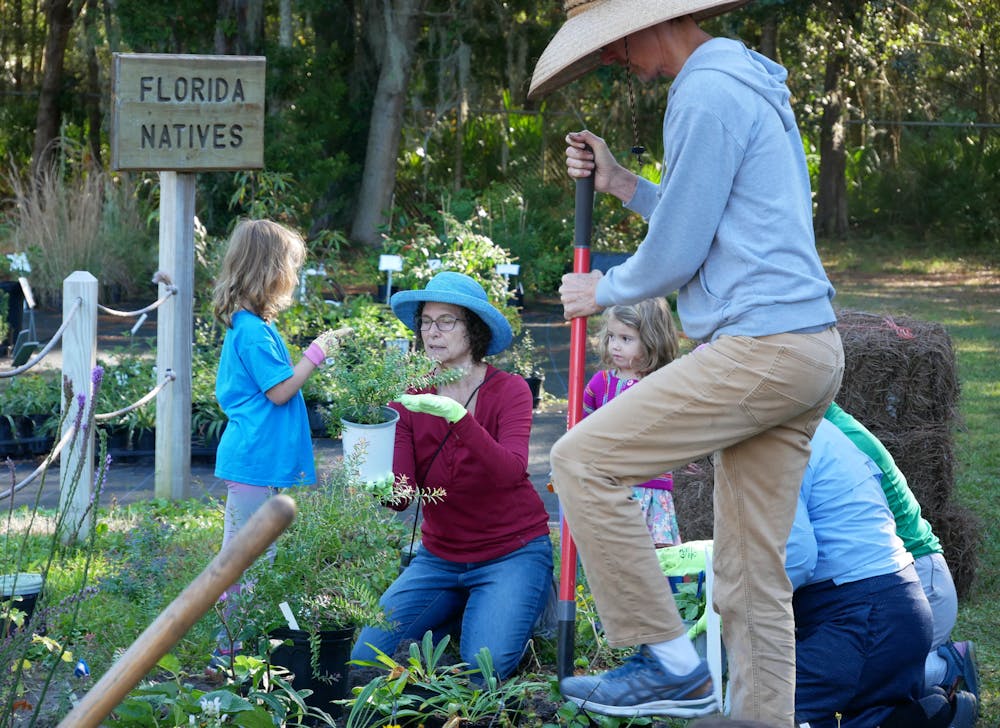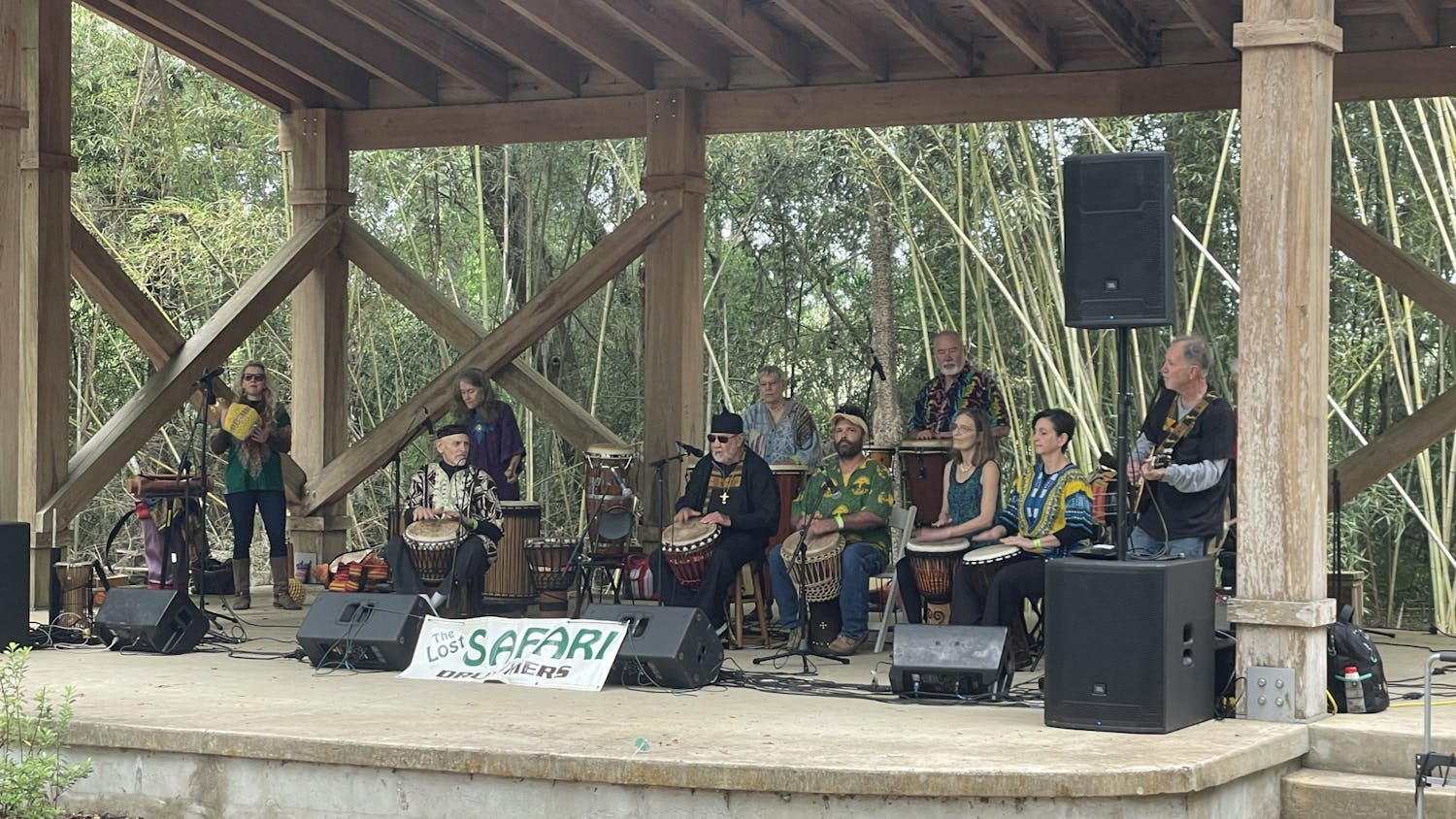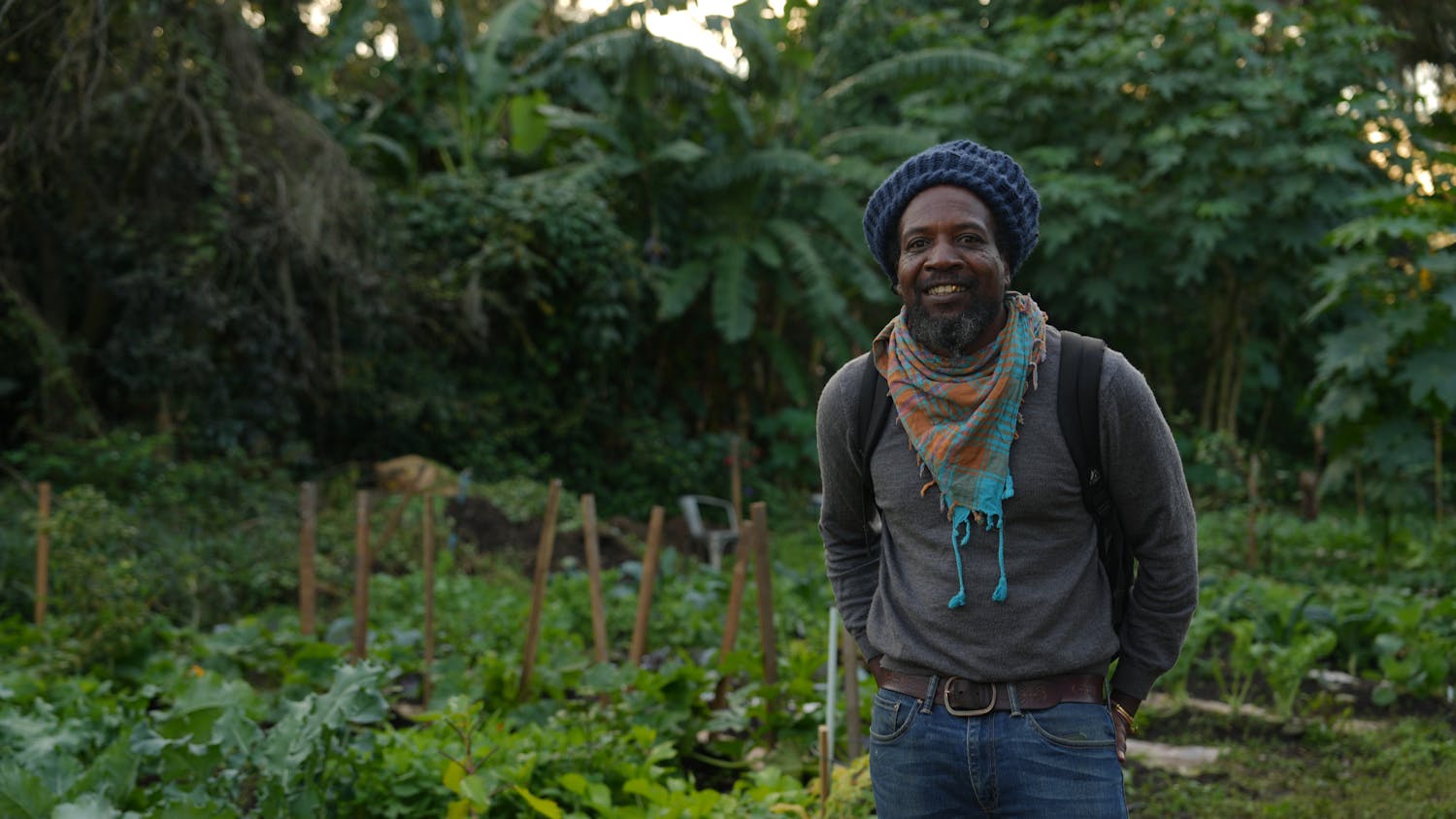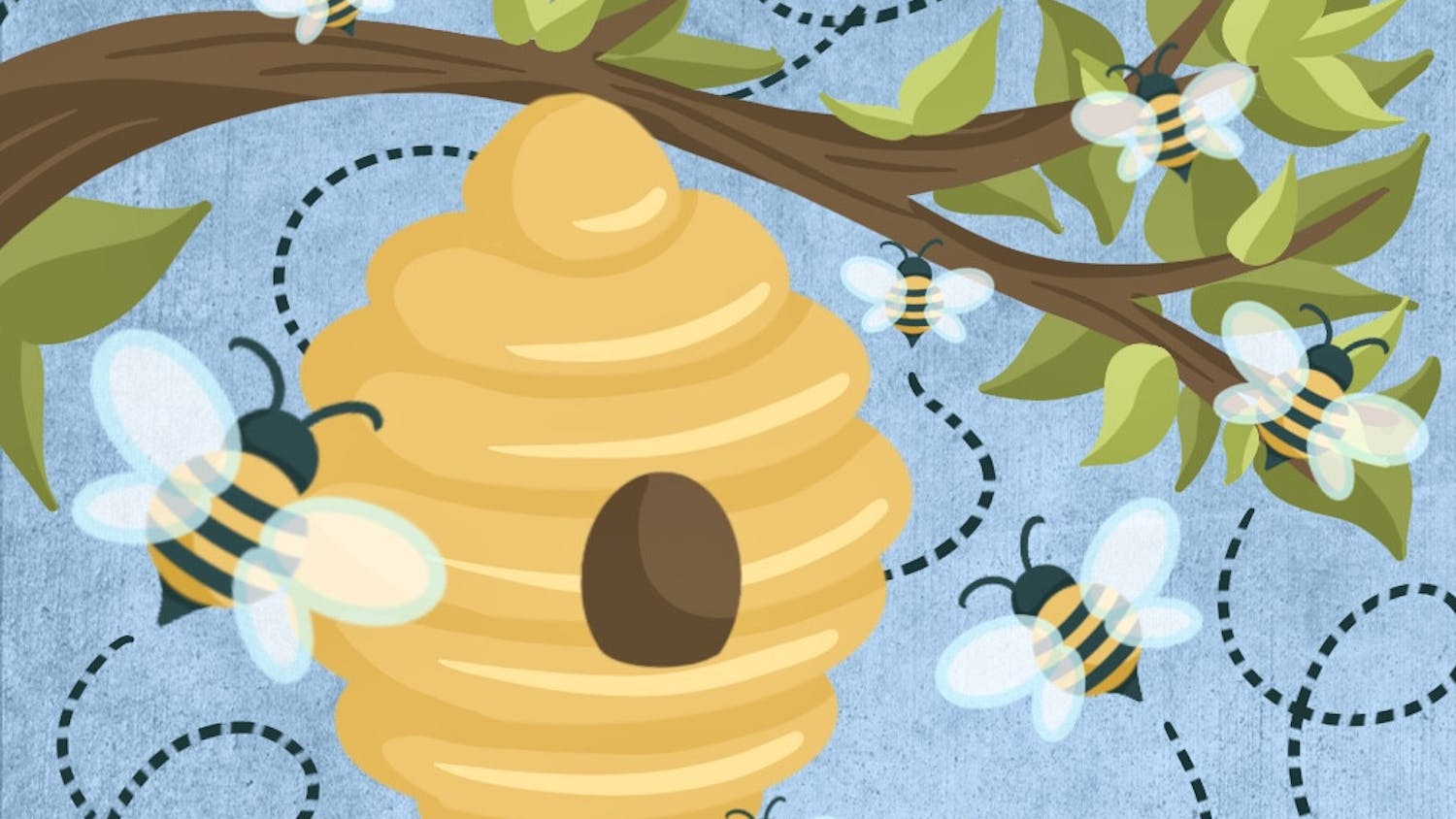Most people don’t want to spend their Saturday morning digging in the dirt. Janice Garry, however, shoved her hands in the soil with gumption, a wide smile on her face.
Garry, a 70-year-old Gainesville resident, watched her two young granddaughters tote watering cans around Grow Hub’s native pollinator garden, chuckling as they carefully watered each plant.
Garry was one of about two dozen volunteers who attended Grow Hub’s planting event the morning of Oct. 21. The garden, teeming with native plants that are pollinator-friendly, is the first Bee City USA green space in Gainesville. The City of Gainesville was certified as a bee city in January and is now working toward installing local pollinator landscapes.
Garry was one of the original organizers for the bee city designation, and connected the city with nonprofit organizations to get it certified. She was a backyard beekeeper for 10 years, Garry said, and has a shared passion for pollinators with other volunteers.
“The people who are here understand the importance of native species and insects in the environment,” Garry said. “There’s an instant camaraderie.”
Grow Hub’s garden includes a variety of native plants such as blue mistflower, coreopsis and wild rosemary. The purpose of the garden’s installation is to create a habitat for native pollinators, as well as to educate the community on native plants and bees, Grow Hub outreach coordinator Cherice Smithers said in an email.
“The selected species will bloom at different times throughout the year,” Smithers added, “So native bee populations will have an ongoing food source and the garden will evolve with the seasons.”
As part of the bee city initiative, Grow Hub sells all of the native plants displayed in the pollinator garden. Besides the garden, Grow Hub’s site includes a larger plant nursery, several bee hives and two donkeys dubbed Lewis and Clark. The nonprofit’s proceeds from plant and retail sales allow it to employ 18 adults with disabilities.
The native planting event was organized by the City of Gainesville and the Florida Wildflower Foundation, a nonprofit that leads the Bee City Committee. Aside from creating green spaces in urban environments, the Bee City Committee seeks to educate the public and reduce the use of pesticides.
At Grow Hub’s planting event, Briana Llamosas, an 18-year-old UF public relations freshman, and Flory-Anne Eliaza, a 19-year-old UF youth, family and community sciences sophomore, took a break from planting to snag a latte from Afternoon Roasting’s pop up bar. The local coffee roasting company provided free coffee and pastries to volunteers at the event. Llamosas and Eliaza volunteered together with friends in an effort to learn more about and support Gainesville.
“I want to be part of something that’s for the greater community,” Eliaza said.
The City of Gainesville began working toward a bee city designation after a donor provided $50,000 for the initiative, FWF liaison Geena Hill said. Bee cities are committed to the conservation of native pollinators and are required to create native gardens within its communities.
There are over 300 native bee species in Florida, 29 of which are found nowhere else on Earth. Preserving these native species are important, Hill said, due to the threats they face from human activity. Insecticides, invasive species and urban development have all led to the decline in Florida’s native bees.
Native pollinators are vital to humans for many reasons, Hill said. Pollinators mitigate climate change by contributing to plant growth, which absorbs harmful carbon dioxide. However, Hill said, popular lawn grasses like St. Augustine grass often replace these helpful native plants.
“Grass really doesn’t do anything for the environment,” Hill added. “It’s not really supporting any sort of wildlife.”
Bees are also an important agricultural resource to humans. Not only do honey bees produce beeswax and honey, but bees can improve crop sizes and yields, UF honey bee research and extension laboratory manager Christopher Oster said. Although honey bees aren’t native to Florida, farmers will often introduce hives to their farms to improve agricultural productivity, Oster added.
Bees will travel up to five miles away from their colony to forage for food, Oster said. Adding native pollinator gardens to Gainesville would add habitats and food sources for bees, he said, which could help local populations grow.
“A single bee will take tens of thousands of visits to flowers in its lifetime,” Oster added. “So having the more out there, the better.”
The Grow Hub garden was designed pro bono by Zamia Design, a Gainesville landscape architecture company that specializes in native plants. Zamia chose to take on the project to help the Gainesville community and because it prioritizes the conservation of native flora and fauna, the company’s business manager Andrea Zable said.
Zamia’s priority is encouraging its clients on why they should choose to grow native plants, Zable said. Plants native to Florida require very little irrigation, she added, which conserves water as a valuable resource and saves consumers money on their water bill.
“We need to start to help people have landscapes that they enjoy, but don’t require constant irrigation,” Zable said.
The Bee City Committee hopes to expand its initiative by creating more green spaces and native pollinator gardens in the future, Florida Wildflower Foundation executive director Stacey Matrazzo said. FWF has begun mapping existing green spaces in Gainesville, she said, to find where the gaps are. The goal is to create a network of native pollinator gardens and green spaces so that all habitats in Gainesville can be interconnected, Matrazzo added.
Part of the foundation’s mission is to educate the public on the importance of pollinators and native plants, Matrazzo said. FWF has begun working with UF to establish a native pollinator area on campus, she added.
“We will hopefully be able to show an increase in pollinator abundance,” Matrazzo said.
As volunteers spread a final layer of pine straw over the finished Grow Hub garden, Garry watched her youngest granddaughter make a final pass with the watering can. When Garry started work on the bee city project, her granddaughter hadn’t been born yet. Now, it was rewarding to see the initiative finally take off, she added.
“If we don’t have a habitable planet, none of the rest of it matters,” she said.
Contact Kylie Williams at kyliewilliams@alligator.org. Follow her on Twitter @KylieWilliams99
Kylie Williams is the Fall 2024 Enterprise Editor and a junior journalism major. Previously, she worked for the enterprise desk as the environment reporter. In her free time, she can be found reading, baking or watching reality TV with her cat.






